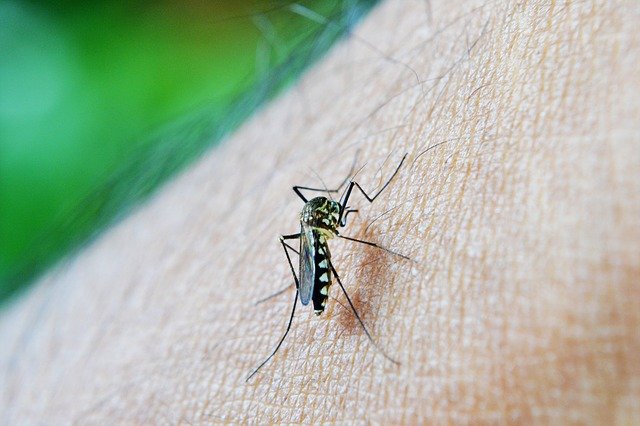A flood can wreak havoc on homes, public spaces, and commercial buildings. And in the aftermath of this natural disaster, there are threats to your health and safety. Flood water brings many hidden dangers and diseases that you need to be mindful of. Here are the most noteworthy illnesses associated with flooding – be aware, stay safe.
1. Mosquito-related diseases
A common problem with floodwater is that it is a breeding ground for mosquitoes. The flying insects can find shelter in debris that is holding standing water in the aftermath of a flood. This increases the risk of contracting the West Nile virus, encephalitis, or another disease. Bites from certain mosquitos can also cause malaria, a life-threatening infectious illness caused by ‘Plasmodium parasites.’ Severe malaria can cause seizures, yellow skin, coma, or death. Your first response should be to invest in an incest repellant to minimize the chances of a mosquito bite.
2. Gastrointestinal diseases
Ingesting floodwater can cause you to develop viruses, parasites, or bacteria known to cause gastrointestinal diseases. While most of these infections are not life-threatening, they can become serious if not cured early. Germs that contaminate floodwater can also cause stomach distress. A few examples of these germs are E. coli, Giardia, and Cryptosporidium. Leptospirosis, a disease caused by a bacterium present in the urine of four-legged mammals like rats, can also transmit to humans who contact floodwater directly. Common symptoms of leptospirosis include headache, muscle pain, jaundice, and abdominal pain.
3. Skin infections
There’s a risk of experiencing certain dermatologic complications following a flooding event. For instance, direct contact with floodwater could cause necrotizing fasciitis (a.k.a., flesh-eating bacteria), leading to severe complications or even death. Individuals with injured skin are the most vulnerable – they can experience soft tissue and skin infections when exposed to contaminated water containing pollutants, chemicals, or sewage. The first step to prevent infection is to wear proper protective clothing and cover any scrapes or cuts that you might have gotten during the flood.
4. Mold-induced health ailments
Exposure to mildew and mold can result in upper respiratory diseases, especially if you have asthma or allergy. Plus, it can trigger cold-like systems such as dizziness, wheezing, and watery eyes. Mold forms quickly in damp and wet areas of homes that have not been cleaned after a flood. Commonly affected areas include carpets, walls, floors, bathrooms, and toilets. While molds exist naturally in our homes, small mold spores can also be inhaled by your body and result in asthma or allergic episodes. Pregnant women and the elderly are most vulnerable to mold-related health issues.
5. Hepatitis
Contrary to popular belief, hepatitis is not only spread via unprotected intercourse or IV drug use. The fact is that you can also contract the disease through contaminated water or food. Residents of flood-struck areas are at risk of developing hepatitis E and A, although the former is rare in the US. Hepatitis A is a liver infection that can cause symptoms like nausea, abdominal pain near the liver, jaundice, and fever. If you have contracted the disease, it will run its course, and at least three months are required for a complete recovery.
6. Cancer
Cancer from floodwater? It’s possible. Water heavily contaminated with chemicals like chlorinated solvents and MTBE raises the risk of developing cancer when you drink from such a water source. The chemicals distort the properties of the DNA, resulting in cancerous tumors. You’re probably aware of the chronic pain and medical treatment costs that follow after an individual becomes a cancer patient, and, of course, the risk for death can be high, depending on the type of cancer.
7. Mental disorders
Prolonged post-flood recovery can cause mental disorders, sleeplessness, and hyperactivity. Also, flood victims in disaster-prone areas might develop anxiety regarding future floods. As you tend to repairs and cleanup of the damaged areas in the aftermath of a flood, don’t forget to look after yourself. Obtaining emotional support from relief agencies, friends, relatives, local authorities, etc., can help you avoid mental distress.
8. Hypothermia
Hypothermia occurs when your body loses heat quicker than it can generate heat, causing a significant dip in your body temperature. Mild hypothermia often causes symptoms like mental confusion and shivering. More advanced levels of the disease may cause decreased reflexes and slurred speech. In severe instances, hypothermia sufferers experience low blood pressure, cold inflamed skin, and a lack of reflexes. The elderly and children are at a greater risk of contracting the disease during the disaster. One of the most effective ways to reduce your loved ones’ chances of developing hypothermia is to have them wear dry, warm clothes.
Avoid Flood-Induced Disease Outbreak with Utah Flood Clean Up
While you can take some DIY measures to reduce the risk of contracting a water-borne disease, the most effective way to stop an outbreak is to have a professional clean up after the disaster. The Disaster Company specializes in assisting Utah residents with various flood cleanup tasks safely and quickly. Whether you’re dealing with a low-intensity or full-fledged flood, our team will work to ensure the best outcomes possible. Contact us today to learn more about how we reduce your exposure to flood-related health problems via fast and effective cleanup.

